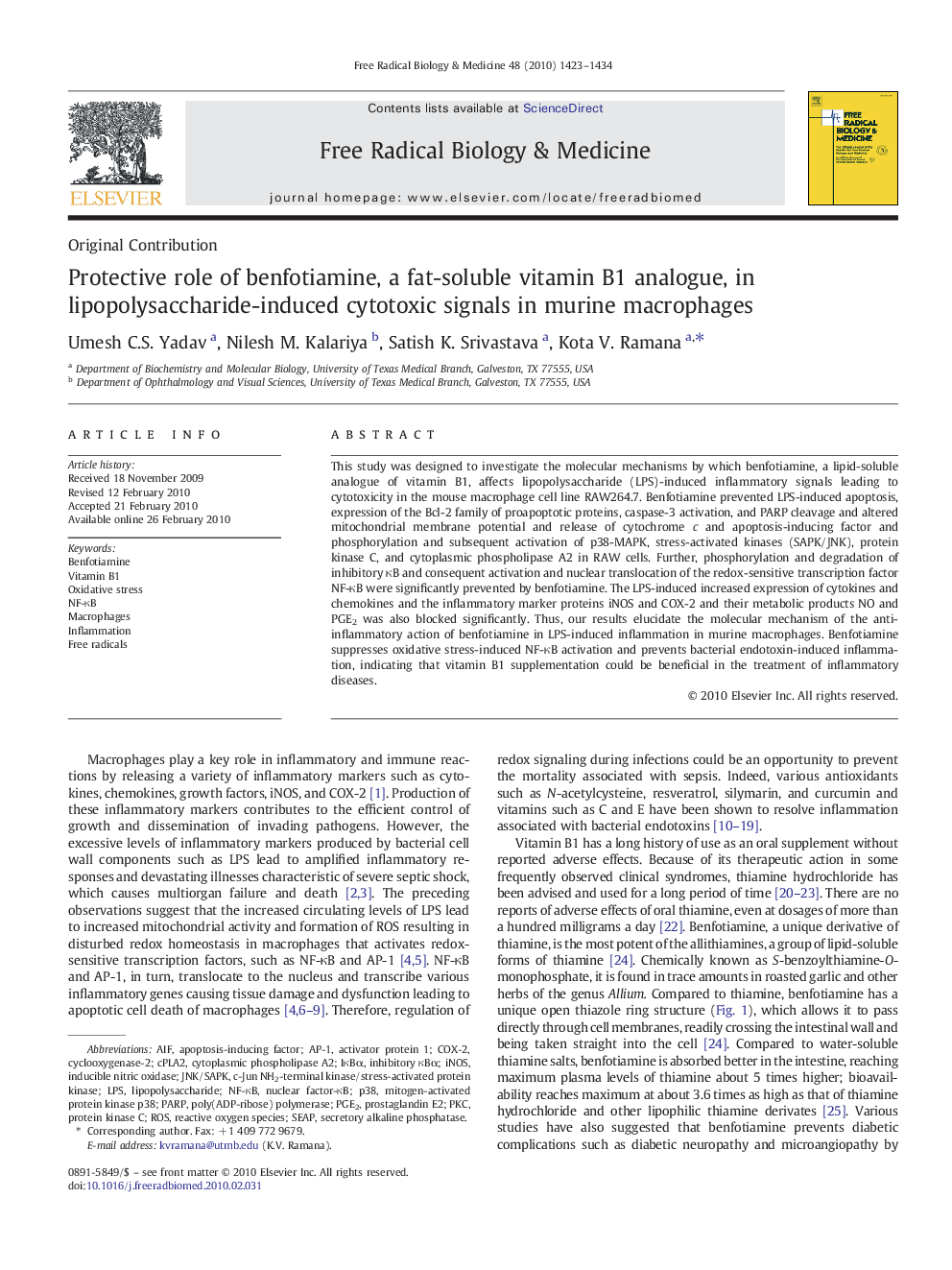| Article ID | Journal | Published Year | Pages | File Type |
|---|---|---|---|---|
| 1909519 | Free Radical Biology and Medicine | 2010 | 12 Pages |
This study was designed to investigate the molecular mechanisms by which benfotiamine, a lipid-soluble analogue of vitamin B1, affects lipopolysaccharide (LPS)-induced inflammatory signals leading to cytotoxicity in the mouse macrophage cell line RAW264.7. Benfotiamine prevented LPS-induced apoptosis, expression of the Bcl-2 family of proapoptotic proteins, caspase-3 activation, and PARP cleavage and altered mitochondrial membrane potential and release of cytochrome c and apoptosis-inducing factor and phosphorylation and subsequent activation of p38-MAPK, stress-activated kinases (SAPK/JNK), protein kinase C, and cytoplasmic phospholipase A2 in RAW cells. Further, phosphorylation and degradation of inhibitory κB and consequent activation and nuclear translocation of the redox-sensitive transcription factor NF-κB were significantly prevented by benfotiamine. The LPS-induced increased expression of cytokines and chemokines and the inflammatory marker proteins iNOS and COX-2 and their metabolic products NO and PGE2 was also blocked significantly. Thus, our results elucidate the molecular mechanism of the anti-inflammatory action of benfotiamine in LPS-induced inflammation in murine macrophages. Benfotiamine suppresses oxidative stress-induced NF-κB activation and prevents bacterial endotoxin-induced inflammation, indicating that vitamin B1 supplementation could be beneficial in the treatment of inflammatory diseases.
